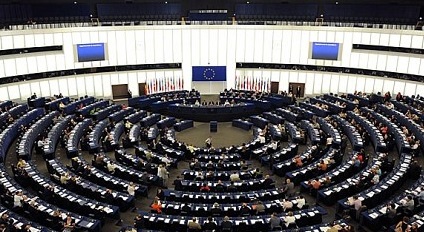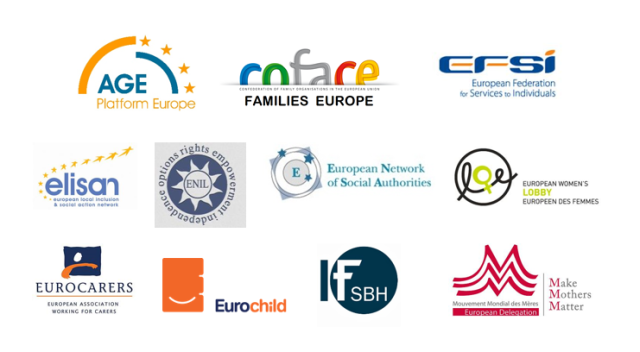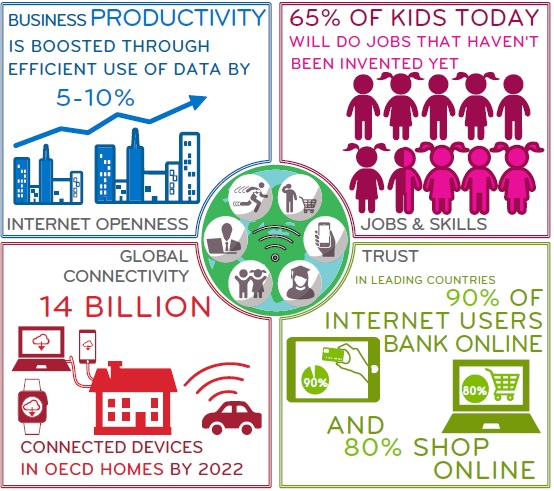 On the 29th of June, the S&D European Parliament Group held a conference on the Platform Economy entitled «European Consumer – between e-commerce models and data pricing».
On the 29th of June, the S&D European Parliament Group held a conference on the Platform Economy entitled «European Consumer – between e-commerce models and data pricing».
COFACE Families-Europe has been closely following developments in the “sharing economy” which is a part of the larger “platform economy”. The concerns are many, as exemplified by the speech of British Member of Parliament Chi Onwurah which identified five challenges linked to the digitalization of our economies:
- Identity: Who controls your online identity? Who is it shared with?
- Data: Who controls your data? Even if in theory you own your data, this right is meaningless if you cannot pass it on or take it back.
- Algorithms: Who makes choices about how these are configured? This question is key as very often, such algorithms will be responsible for deciding how “healthy” you are in the eyes of a health insurer, or how “creditworthy” you are in the eyes of a creditor.
- Collaborative/sharing economy: This is basically a new “intermediary” economy, where platforms like Uber play the role of intermediaries between consumers and drivers. Issues at stake include sick pay, workers’ rights, social rights, pension rights, leave policies etc.
- Digital inclusion: One can never assume that technical solutions will always benefit society as a whole and policies always have to keep in mind and cater to the needs of the digitally excluded.
The EU Commission is also looking into these challenges. As part of its REFIT work programme, the EU Commission is looking at consumer legislation and whether any Directive requires updating due to new emerging challenges. Enforcement of existing legislation is a top priority as well since many Directives already apply to online platforms but are not enforced properly. For instance, the e-commerce Directive and the Unfair Commercial Practices Directive apply to platforms yet there have been cases where Terms of Service of clearly violated these rules. The Commission stressed the importance of providing guidance to platforms to help them abide by the rules.
Yet new legislation is required to tackle a number of issues.
Ranking, sorting and algorithms
Given the sheer mass of information, content, products or services available on platforms, it is impossible to display all of it on a single page. Thus sorting mechanisms, often relying on home baked algorithms, allow users to see the most relevant or “best” results for his/her query on the first page.
As underlined by BEUC’s representative David Martin Ruiz, this ranking system raises many concerns in terms of transparency, impartiality and default sorting solution. Do consumers understand how results are sorted? Can businesses boost their ranking by paying premium fees? How are the results sorted by default? Is it sorted via the “home baked” algorithm or by price, date, location…?
On a larger scale, COFACE Families-Europe raised the issue of opening up algorithms for competition. Whether it is Facebook’s newsfeed, Google’s search results or Booking.com’s rankings, all of these sort information via an internal algorithm. Yet there is nothing preventing other actors to develop their own sorting/ranking algorithms and include them in a list of sorting options inside these platforms, much like the option to sort content by date, price, location etc. Facebook, for instance, has moved from displaying content sorted by date on Instagram to sorting it via an internal algorithm, leaving users no choice! Alternative algorithms could even get their own reviews from users to help users make a decision about which algorithm to choose.
More generally, it is essential that algorithms used in vital settings like assessing insurance risks or creditworthiness are bound by strong ethical values and standards with public/democratic oversight and governance. Any such algorithm must pass a series of “tests” such as the impact on social inclusion, discrimination, accessibility to services etc.
Reviews
While reviews have been a very useful tool for users to provide feedback but also, to help them find the products/services they need, the way they are set up can play against their interests. For instance, if the platform hosting the reviews has the power to remove reviews at their own discretion. Business models around “fake reviews” have also emerged online.
In this regard, COFACE-Families Europe has advocated for outsourcing reviews to a “neutral” and trustworthy service. Examples include TrustPilot but there are more. By oursourcing reviews, you ensure that businesses cannot tamper with reviews and you can also implement scam and fake review filters by verifying that the customer has purchased the service/good they reviewed.
Dynamic pricing and price discrimination
Many businesses including Airlines, online retailers and Uber use dynamic pricing systems which adjust the price of goods/services based on a number of variables, the most common one being offer/demand considerations. Other variables could include the consumers’ profile (whether he/she compares many offers before buying or is an impulsive buyer), and a consumers’ country of origin (evaluating the purchasing power of a consumer). This raises many concerns in terms of impartiality, transparency and fairness, with the risk of excluding people from accessing goods/services.
Another issue is the “race to the bottom” phenomenon for creators/sellers on online platforms. For instance, artists and content creators face competition from all over the world including such countries as India, Senegal, Bangladesh, where people are ready to work for rock bottom pay, effectively killing any hope for independent artists/content creators to make a living if they are based in a developed economy. Some solutions may be to create new forms of trade unions to protect these new independent workers, or to set minimum pricing policies.
New indicators
Users do not understand the platform economy and especially, the new business models which are at the heart of their development.
On in-app purchases, the Commission has worked in partnership with platforms to include a notification that “free” apps include in-app purchases to warn users. This is not enough. Users need new indicators to be able to compare different business models such as a fixed price/licensing model to an in-app purchases model via displaying indications of the average price paid by users who installed an app with in-app purchases.
For platforms relying on advertising, indicators such as ratio of advertising to regular content would inform users about the balance between the two and being able to monitor its development. We have seen a steady increase in advertising on all types of platforms including webstreaming such as Youtube or social networks such as Facebook.
For more information, see the S&D conference website here
 Today, 13 September 2016, the European Parliament voted, in Strasbourg the resolution “Creating labour market conditions favourable for work-life balance” (by 443 votes in favour, 123 against and 100 abstention.
Today, 13 September 2016, the European Parliament voted, in Strasbourg the resolution “Creating labour market conditions favourable for work-life balance” (by 443 votes in favour, 123 against and 100 abstention.

 On the 29th of June, the S&D European Parliament Group held a conference on the Platform Economy entitled «European Consumer – between e-commerce models and data pricing».
On the 29th of June, the S&D European Parliament Group held a conference on the Platform Economy entitled «European Consumer – between e-commerce models and data pricing».

 Following the announcement by the European Commission of a new initiative called “New start to address the challenges of work-life balance faced by working families”, the European Parliament Committees EMPL and FEMM, decided to draft jointly, an own initiative report on “Creating Labour Market conditions Favourable for Work-Life Balance”. The report is to serve as an input into the Commission’s Roadmap and provide the position of the Parliament on the work-life balance policies. The co-rapporteurs are: Tatjana Zdanoka (Greens/EFA) for EMPL and Vilija Blinkeviciute (S&D) for FEMM. In order to start this process and receive inputs, the Committees organized a public hearing on 22 March 2016, giving the floor to a pool of experts.
Following the announcement by the European Commission of a new initiative called “New start to address the challenges of work-life balance faced by working families”, the European Parliament Committees EMPL and FEMM, decided to draft jointly, an own initiative report on “Creating Labour Market conditions Favourable for Work-Life Balance”. The report is to serve as an input into the Commission’s Roadmap and provide the position of the Parliament on the work-life balance policies. The co-rapporteurs are: Tatjana Zdanoka (Greens/EFA) for EMPL and Vilija Blinkeviciute (S&D) for FEMM. In order to start this process and receive inputs, the Committees organized a public hearing on 22 March 2016, giving the floor to a pool of experts. By Martin Schmalzried
By Martin Schmalzried